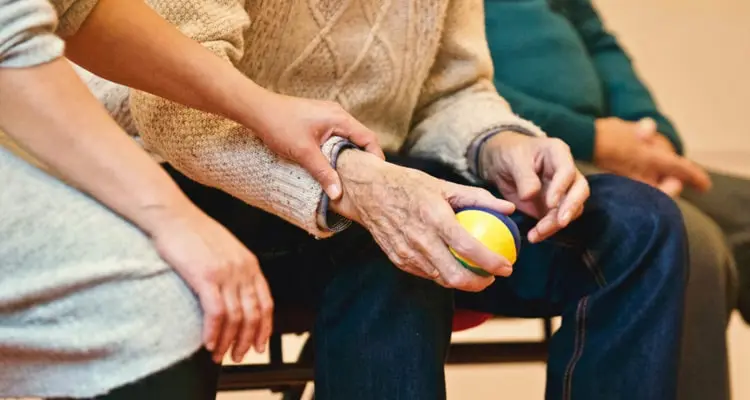
As caregivers dedicated to providing exceptional care for older adults, we recognize the critical role of effective pain management in improving their overall well-being. Aging often brings various physical and emotional challenges, including chronic pain, which can significantly impact the quality of life for seniors. This blog post will share seven essential caregiving tips for effectively managing pain in older adults. By implementing these strategies, caregivers can empower their loved ones and enhance their comfort and happiness.
Here are 7 Caregiving Tips for Effective Pain Management
1. Recognize the Prevalence of Pain in the Elderly
Statistics reveal the significant impact of pain on the elderly population:
- According to the National Library of Medicine, 80% of individuals in nursing homes report experiencing chronic pain, which many older adults perceive as a natural aspect of aging.
- According to the National Library of Medicine, the estimated global occurrence of chronic pain in the elderly population ranges from 25% to 85%.
Understanding the prevalence of pain among older adults emphasizes the urgency and importance of implementing effective pain management strategies.
2. Assess Pain Levels Regularly
Regular assessment of pain levels is crucial for tailoring appropriate interventions. To assess pain intensity, utilize established pain scales, such as the Numeric Rating Scale (NRS) or the Faces Pain Scale. Caregivers can make informed decisions and adjust pain management strategies by consistently monitoring pain levels.
3. Individualize Pain Management Plans
Each elderly pain experience is unique, requiring personalized pain management plans. Consider the following factors when developing an individualized approach:
- The type and location of pain
- The underlying cause of pain
- Medical history and any contraindications
- The individual’s preferences and goals
By individualizing pain management plans, caregivers can optimize pain relief and improve the overall well-being of older adults.
4. Medication Management and Collaboration
Appropriate medication management is a fundamental aspect of pain management in seniors. Collaborate closely with healthcare professionals, including physicians and pharmacists, to develop a comprehensive medication plan. Consider the following medication-related factors:
- Ensure proper dosing and timing of medications.
- Regularly review the effectiveness of medications and adjust the regimen if needed.
- Be aware of potential side effects and adverse drug interactions.
- Educate seniors and their family members about medication usage and potential risks.
Caregivers can ensure safe and effective pain management by maintaining open communication and collaboration with healthcare professionals.
5. Non-Pharmacological Approaches
Complementary non-pharmacological approaches can significantly enhance pain management in older adults. Consider incorporating the following techniques into the caregiving plan:
- Physical therapy and exercise: Engage elderly individuals in appropriate exercises and physical activities to improve mobility, strengthen muscles, and alleviate pain.
- Heat and cold therapy: Apply heat or cold packs to affected areas to relieve temporary pain.
- Massage and relaxation techniques: Explore the benefits of therapeutic massage, guided imagery, deep breathing exercises, or meditation to promote relaxation and alleviate pain.
By integrating non-pharmacological approaches, caregivers can reduce reliance on medications and offer holistic pain management solutions.
6. Environmental Modifications
Creating a comfortable and supportive environment is vital in pain management for older adults. Consider the following environmental modifications:
- Ensure proper lighting to minimize eye strain and create a visually comfortable space.
- Optimize temperature control to maintain a cozy and soothing atmosphere.
- Arrange furniture ergonomically to promote good posture and reduce discomfort.
- Use supportive bedding and cushions to alleviate pressure points and provide adequate support.
By making these environmental modifications, caregivers can enhance the physical comfort of the elderly individuals they care for.
7. Emotional Support and Mental Well-being
Recognize that pain management extends beyond the physical aspect. Emotional support and mental well-being are integral to comprehensive care. Consider the following strategies:
- Encourage social engagement and interaction with friends, family, and support groups to alleviate feelings of isolation.
- Promote cognitive stimulation through activities such as puzzles, reading, or learning new skills to maintain mental sharpness and distract from pain.
- Provide emotional coping strategies such as mindfulness techniques, journaling, or talking therapies to address pain-related emotional distress.
By addressing older adults’ emotional and mental well-being, caregivers can contribute to a holistic and effective pain management approach.
Senior Counseling for the Mental Health Effect of Chronic Pain
Effective pain management in seniors addresses both physical symptoms and the mental health impacts of chronic pain. Incorporating senior counseling services, such as those provided by Blue Moon Senior Counseling, can be invaluable in addressing the emotional and psychological impact of chronic pain. By seeking professional support and guidance, caregivers can help their loved ones navigate the complex challenges of chronic pain, offering them the tools and resources needed to cope with the associated mental health effects. With a comprehensive approach that includes both physical and psychological well-being, caregivers can truly make a difference in enhancing the quality of life for the elderly individuals they care for.
If you or your loved one is struggling with the mental health effects of chronic pain, don’t hesitate to reach out to Blue Moon Senior Counseling. Our experienced counselors specialize in providing support and guidance specifically tailored to the unique needs of seniors. Take the first step towards improved well-being and a better quality of life today!










